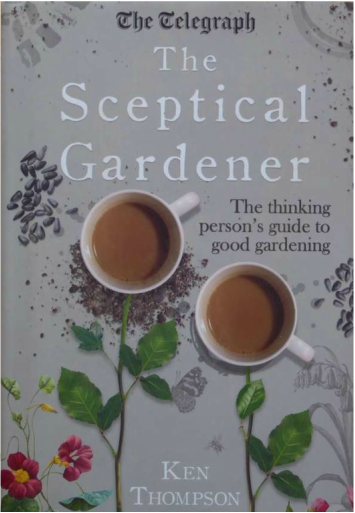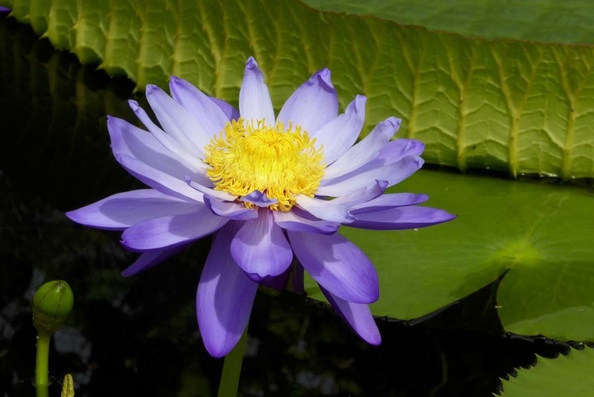This quote sums up pretty well what to expect, I think: both in terms of content and - more importantly perhaps, given that the subject "scientific papers" sounds rather off-putting - in terms of style. In fact, it is anything but a dull read. It is engaging and entertaining and thought provoking. Written in the voice of someone grounded, no-nonsense but with a sense of humour and the ability to explain complex things conversationally, for the benefit of those less familiar with the subject. Yet the author always wears his knowledge lightly. I could do with this style of guidance in other spheres of life...
The spectrum covered is huge: from Birds and house prices to Crocks in pots, from Meadows and sugar to the Status of gardeners, from Bat boxes and Floral clocks to Breeding for flavour, Planting by the moon and The Swiss cheese plant: why holes are an advantage. It is a true miscellany, a smorgasbord of well-presented facts and thoughts. And it triggered many reflections of my own, one of which I would like to expand here.
The more I learn about this rat race - or, to be broader, about Darwinism in action - the more I want to forget about it. Those facts are fascinating in themselves, as is the science involved and the whole concept of evolution etc.. It's a marvel what strategies Mother Nature has come up with - not just in the animal world but in the plant world, too. But to be honest: when I'm outside I don't want to know.
Why? Well, the psychological benefits of gardening are known far and wide and scientifically proven in countless studies. But I have a hunch they are in real danger if one thinks too hard about what is ACTUALLY going on.
Is a garden still a joy when you observe it through the spectacles of Darwinism?
We live in an increasingly complex, complicated world where you are constantly confronted with the nasty aspects of Darwinism. (I'm thinking of what humans do to each other - and certainly not just on the battlefield! - as well as how our species destroys their fellow creatures. As for the ever-increasing complexities of modern life I probably don't need to expand.) More often than not you can't do a thing about it but paddle as honourably as you personally can in life in order not to get submerged and drown. A walk in the park, wood or meadow and especially a garden increasingly becomes a refuge, a respite. If you come out to relax in your patch and then in your mind's eye see nothing but a battle ground and carnage...
Not least, by the way, because otherwise my own gardening mistakes would accumulate into a guilty conscience tantamount to that of a murderer. What about the little gems I lost because I planted them where the Parthenocissus romps? They were tolerant of some shade. But I was hoping against better knowledge that they'd be capable of surviving the constant darkness the climber casts as it spreads its leaves and closes the canopy above them. Murder! Wilful murder!
Or should one approach scientific facts with an ostrich mentality for the sake of sanity?
From Ken Thompson I learned that a plant "knows" about its neighbours even before they are shaded by them. They respond, he writes, not to the quantity of light but to its quality, measuring the spectrum of light available. More precisely, because plants use mainly red light for photosynthesis rather than the whole visible spectrum, light reflected off leaves is different in quality to ordinary sunlight. He also recounts a study that showed leaves touching any obstruction will grow up - in an effort to shade their neighbour. Which means: by consistently planting too close (for lack of space), from the word "go" I put my plants under permanent stress as they "know" their perilous position. Can I live with that on my conscience?
In the end, I guess, it comes down to your own world view and approach to life: It's the same as knowing, of course, that flowers don't exist for our benefit. But then, when gazing at one or sinking your nose in to drink its fragrance: what's wrong with convincing yourself, just for a teeny weeny incy wincy moment, that it is there just for your enjoyment? And, you know, you could even make a case for it: After all, there are so many flowers grown by plants that never get pollinated - who is to say those were NOT meant to just bring joy into this world?


 RSS Feed
RSS Feed